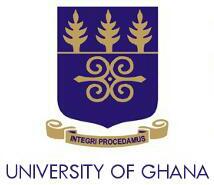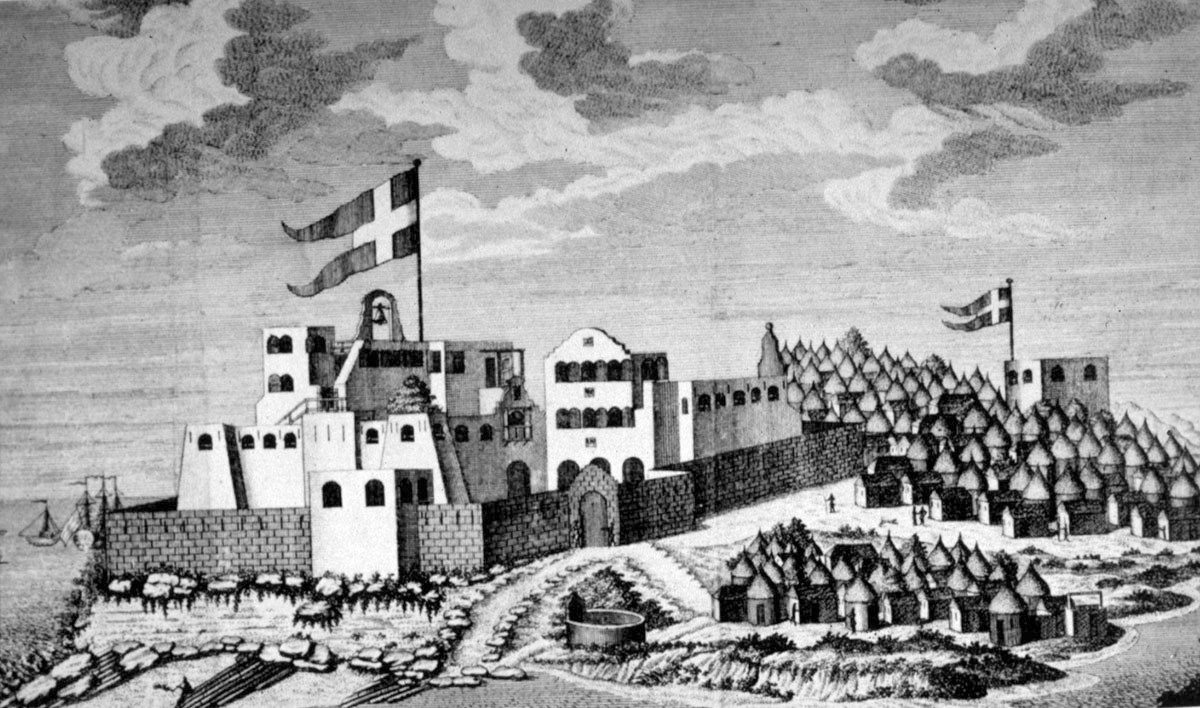|
Rudolf Amenga-Etego
Rudolf Amenga-Etego (born December 17, 1958) is a Ghanaian lawyer and environmentalist. He was awarded the Goldman Environmental Prize in 2004, for his efforts in keeping water supplies affordable for the population and campaigning against the privatization of water in Ghana. The main opposition is the World Bank and the International Monetary Fund who are offering loans to the Ghanaian government to improve the water infrastructure across the country. The only drawbacks to these loans are their stipulations requiring the privatization of the water supply. As a young lawyer, he found himself defending poor people who had not paid their water bills and those who were being persecuted for tapping into illegal water sources to survive. This struggle compelled him to dig deeper into the root causes of the water problem which is the landmark that led him all the way to the World Bank. He became interested in water in 1999 when his neighbors in the capital, Accra, complained that their ... [...More Info...] [...Related Items...] OR: [Wikipedia] [Google] [Baidu] |
Goldman Environmental Prize
The Goldman Environmental Prize is a prize awarded annually to grassroots environmental activists, one from each of the world's six geographic regions: Africa, Asia, Europe, Islands and Island Nations, North America, and South and Central America. The award is given by the Goldman Environmental Foundation headquartered in San Francisco, California. It is also called the ''Green Nobel.'' The Goldman Environmental Prize was created in 1989 by philanthropists Richard and Rhoda Goldman. , the award amount is $200,000. The winners are selected by an international jury who receive confidential nominations from a worldwide network of environmental organizations and individuals. Prize winners participate in a 10-day tour of San Francisco and Washington, D.C., for an awards ceremony and presentation, news conferences, media briefings and meetings with political, public policy, financial and environmental leaders. The award ceremony features short documentary videos on each winner, narra ... [...More Info...] [...Related Items...] OR: [Wikipedia] [Google] [Baidu] |
Water
Water (chemical formula ) is an inorganic, transparent, tasteless, odorless, and nearly colorless chemical substance, which is the main constituent of Earth's hydrosphere and the fluids of all known living organisms (in which it acts as a solvent). It is vital for all known forms of life, despite not providing food, energy or organic micronutrients. Its chemical formula, H2O, indicates that each of its molecules contains one oxygen and two hydrogen atoms, connected by covalent bonds. The hydrogen atoms are attached to the oxygen atom at an angle of 104.45°. "Water" is also the name of the liquid state of H2O at standard temperature and pressure. A number of natural states of water exist. It forms precipitation in the form of rain and aerosols in the form of fog. Clouds consist of suspended droplets of water and ice, its solid state. When finely divided, crystalline ice may precipitate in the form of snow. The gaseous state of water is steam or water vapor. W ... [...More Info...] [...Related Items...] OR: [Wikipedia] [Google] [Baidu] |
21st-century Ghanaian Lawyers
The 1st century was the century spanning AD 1 ( I) through AD 100 ( C) according to the Julian calendar. It is often written as the or to distinguish it from the 1st century BC (or BCE) which preceded it. The 1st century is considered part of the Classical era, epoch, or historical period. The 1st century also saw the appearance of Christianity. During this period, Europe, North Africa and the Near East fell under increasing domination by the Roman Empire, which continued expanding, most notably conquering Britain under the emperor Claudius (AD 43). The reforms introduced by Augustus during his long reign stabilized the empire after the turmoil of the previous century's civil wars. Later in the century the Julio-Claudian dynasty, which had been founded by Augustus, came to an end with the suicide of Nero in AD 68. There followed the famous Year of Four Emperors, a brief period of civil war and instability, which was finally brought to an end by Vespasian, ninth Roman emperor, ... [...More Info...] [...Related Items...] OR: [Wikipedia] [Google] [Baidu] |
Ghanaian Environmentalists
Ghana (; tw, Gaana, ee, Gana), officially the Republic of Ghana, is a country in West Africa. It abuts the Gulf of Guinea and the Atlantic Ocean to the south, sharing borders with Ivory Coast in the west, Burkina Faso in the north, and Togo in the east.Jackson, John G. (2001) ''Introduction to African Civilizations'', Citadel Press, p. 201, . Ghana covers an area of , spanning diverse biomes that range from coastal savannas to tropical rainforests. With nearly 31 million inhabitants (according to 2021 census), Ghana is the second-most populous country in West Africa, after Nigeria. The capital and largest city is Accra; other major cities are Kumasi, Tamale, and Sekondi-Takoradi. The first permanent state in present-day Ghana was the Bono state of the 11th century. Numerous kingdoms and empires emerged over the centuries, of which the most powerful were the Kingdom of Dagbon in the north and the Ashanti Empire in the south. Beginning in the 15th century, the ... [...More Info...] [...Related Items...] OR: [Wikipedia] [Google] [Baidu] |
Living People
Related categories * :Year of birth missing (living people) / :Year of birth unknown * :Date of birth missing (living people) / :Date of birth unknown * :Place of birth missing (living people) / :Place of birth unknown * :Year of death missing / :Year of death unknown * :Date of death missing / :Date of death unknown * :Place of death missing / :Place of death unknown * :Missing middle or first names See also * :Dead people * :Template:L, which generates this category or death years, and birth year and sort keys. : {{DEFAULTSORT:Living people 21st-century people People by status ... [...More Info...] [...Related Items...] OR: [Wikipedia] [Google] [Baidu] |
Political Science
Political science is the scientific study of politics. It is a social science dealing with systems of governance and power, and the analysis of political activities, political thought, political behavior, and associated constitutions and laws. Modern political science can generally be divided into the three subdisciplines of comparative politics, international relations, and Political philosophy, political theory. Other notable subdisciplines are Public administration, public policy and administration, Domestic politics, domestic politics and government, political economy, and political methodology. Furthermore, political science is related to, and draws upon, the fields of economics, Legal education, law, sociology, history, philosophy, human geography, political anthropology, and psychology. Political science is methodologically diverse and appropriates many methods originating in psychology, social research, and political philosophy. Approaches include positivism, Vers ... [...More Info...] [...Related Items...] OR: [Wikipedia] [Google] [Baidu] |
Integrity
Integrity is the practice of being honest and showing a consistent and uncompromising adherence to strong moral and ethical principles and values. In ethics, integrity is regarded as the honesty and truthfulness or accuracy of one's actions. Integrity can stand in opposition to hypocrisy, in that judging with the standards of integrity involves regarding internal consistency as a virtue, and suggests that parties holding within themselves apparently conflicting values should account for the discrepancy or alter their beliefs. The word ''integrity'' evolved from the Latin adjective ''integer'', meaning ''whole'' or ''complete''. In this context, integrity is the inner sense of "wholeness" deriving from qualities such as honesty and consistency of character. In ethics In ethics, an individual is said to possess the virtue of integrity if the individual's actions are based upon an internally consistent framework of principles. These principles should uniformly adhere to sound l ... [...More Info...] [...Related Items...] OR: [Wikipedia] [Google] [Baidu] |
University Of Ghana
The University of Ghana is a public university located in Accra, Ghana. It the oldest and largest of the thirteen Ghanaian national public universities. The university was founded in 1948 as the University College of the Gold Coast in the British colony of the Gold Coast. It was originally an affiliate college of the University of London, which supervised its academic programs and awarded degrees. After Ghana gained independence in 1957, the college was renamed the University College of Ghana. It changed its name again to the University of Ghana in 1961, when it gained full university status. The University of Ghana is situated on the West view of the Accra Legon hills and at the northeast of the centre of Accra. It has over 40,000 registered students. Introduction The original emphasis on establishing the University of Ghana was on the liberal arts, social sciences, law, basic science, agriculture and medicine. However, as part of a national educational reform program, ... [...More Info...] [...Related Items...] OR: [Wikipedia] [Google] [Baidu] |
Accra
Accra (; tw, Nkran; dag, Ankara; gaa, Ga or ''Gaga'') is the capital and largest city of Ghana, located on the southern coast at the Gulf of Guinea, which is part of the Atlantic Ocean. As of 2021 census, the Accra Metropolitan District, , had a population of 284,124 inhabitants, and the larger Greater Accra Region, , had a population of 5,455,692 inhabitants. In common usage, the name "Accra" often refers to the territory of the Accra Metropolitan District as it existed before 2008, when it covered .Sum of the land areas of Accra Metropolitan District, Ablekuma Central Municipal District, Ablekuma North Municipal District, Ablekuma West Municipal District, Ayawaso Central Municipal District, Ayawaso East Municipal District, Ayawaso North Municipal District, Ayawaso West Municipal District, Korle Klottey Municipal District, Krowor Municipal District, La Dadekotopon Municipal District, Ledzokuku Municipal District, and Okaikoi North Municipal District, as per the ... [...More Info...] [...Related Items...] OR: [Wikipedia] [Google] [Baidu] |
Landmark
A landmark is a recognizable natural or artificial feature used for navigation, a feature that stands out from its near environment and is often visible from long distances. In modern use, the term can also be applied to smaller structures or features, that have become local or national symbols. Etymology In old English the word ''landmearc'' (from ''land'' + ''mearc'' (mark)) was used to describe a boundary marker, an "object set up to mark the boundaries of a kingdom, estate, etc.". Starting from approx. 1560, this understanding of landmark was replaced by a more general one. A landmark became a "conspicuous object in a landscape". A ''landmark'' literally meant a geographic feature used by explorers and others to find their way back or through an area. For example, the Table Mountain near Cape Town, South Africa is used as the landmark to help sailors to navigate around southern tip of Africa during the Age of Exploration. Artificial structures are also sometimes buil ... [...More Info...] [...Related Items...] OR: [Wikipedia] [Google] [Baidu] |
People
A person ( : people) is a being that has certain capacities or attributes such as reason, morality, consciousness or self-consciousness, and being a part of a culturally established form of social relations such as kinship, ownership of property, or legal responsibility. The defining features of personhood and, consequently, what makes a person count as a person, differ widely among cultures and contexts. In addition to the question of personhood, of what makes a being count as a person to begin with, there are further questions about personal identity and self: both about what makes any particular person that particular person instead of another, and about what makes a person at one time the same person as they were or will be at another time despite any intervening changes. The plural form " people" is often used to refer to an entire nation or ethnic group (as in "a people"), and this was the original meaning of the word; it subsequently acquired its use as a plural fo ... [...More Info...] [...Related Items...] OR: [Wikipedia] [Google] [Baidu] |





_1938.jpg)